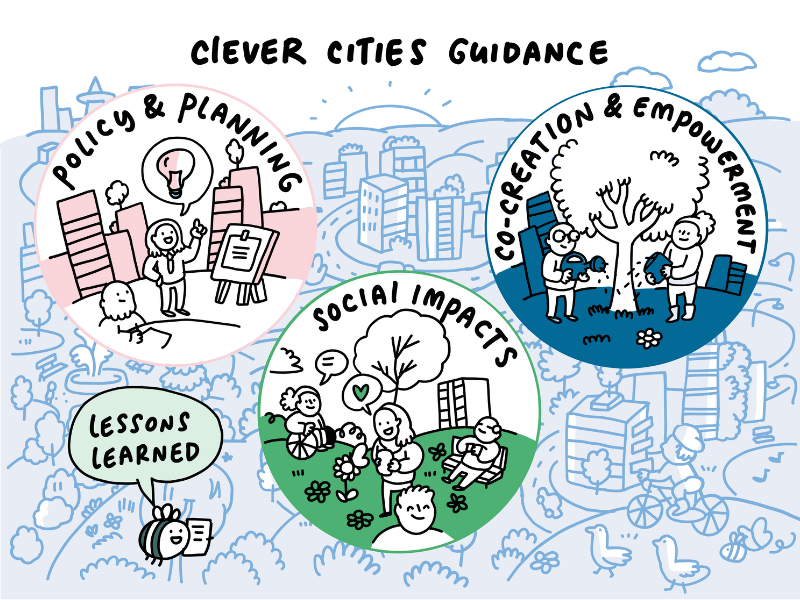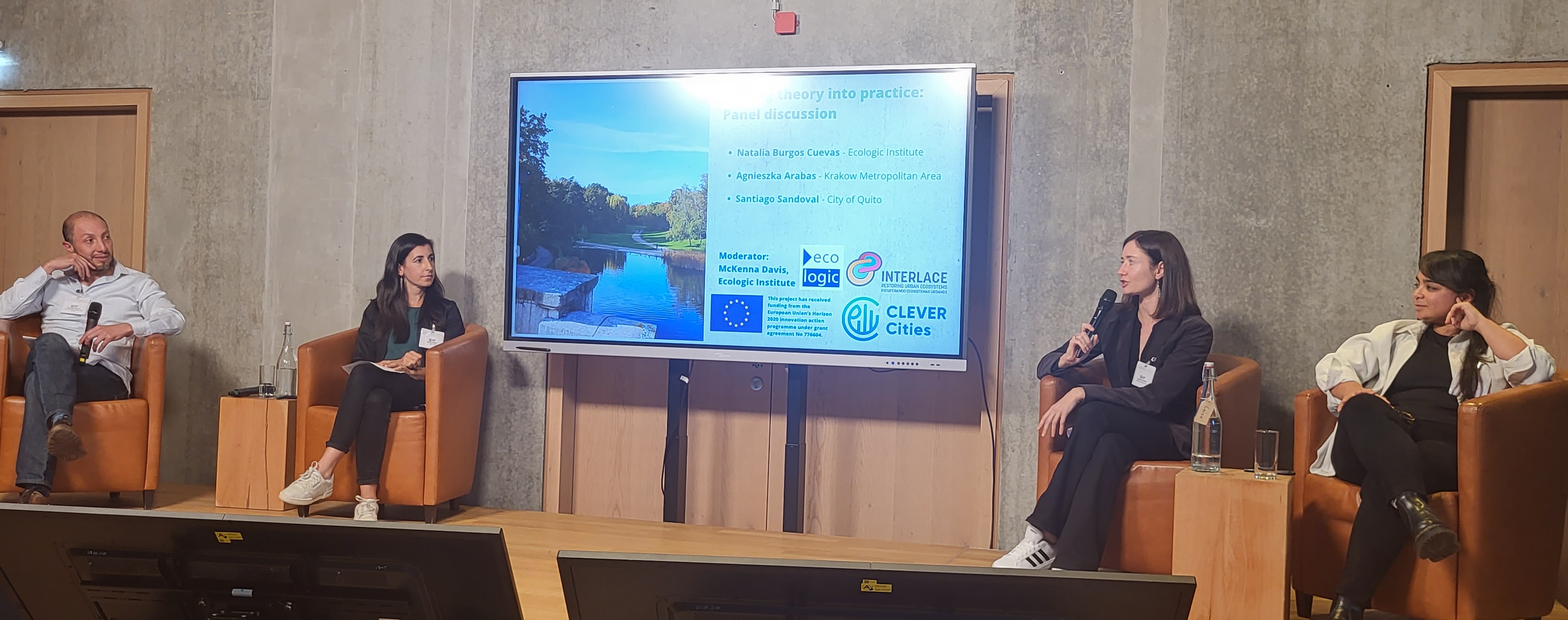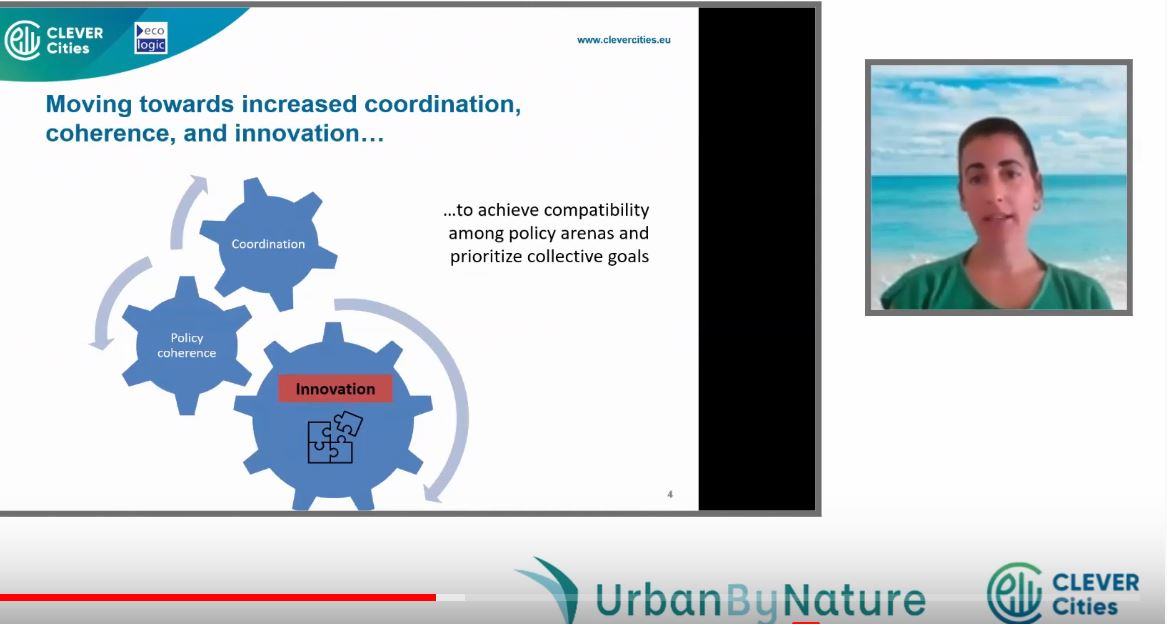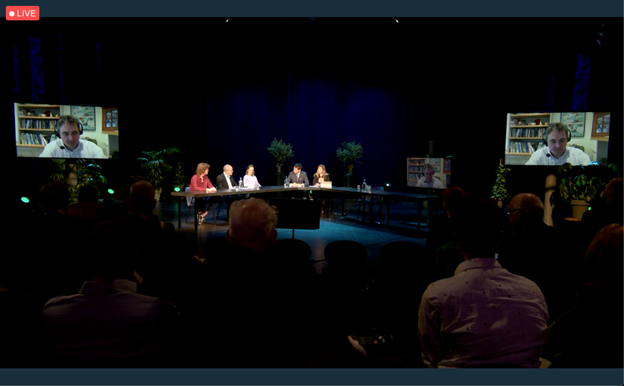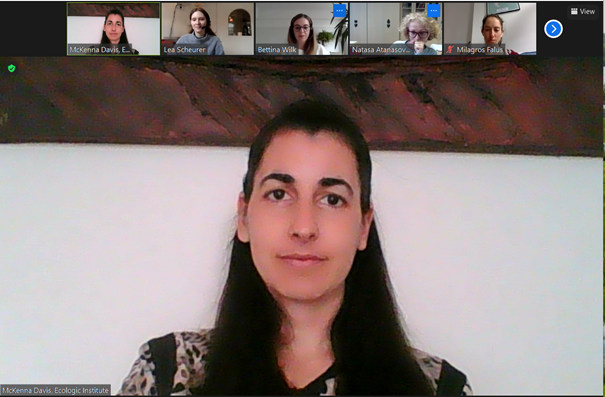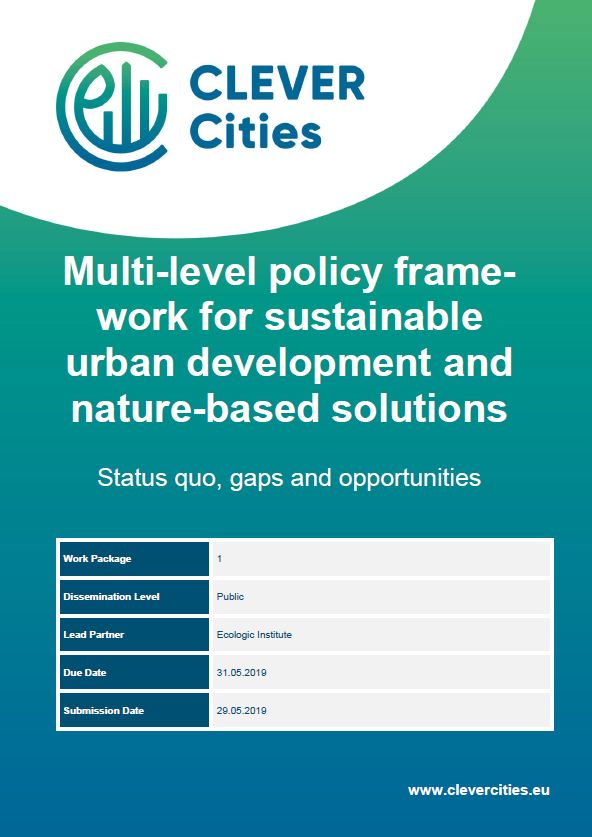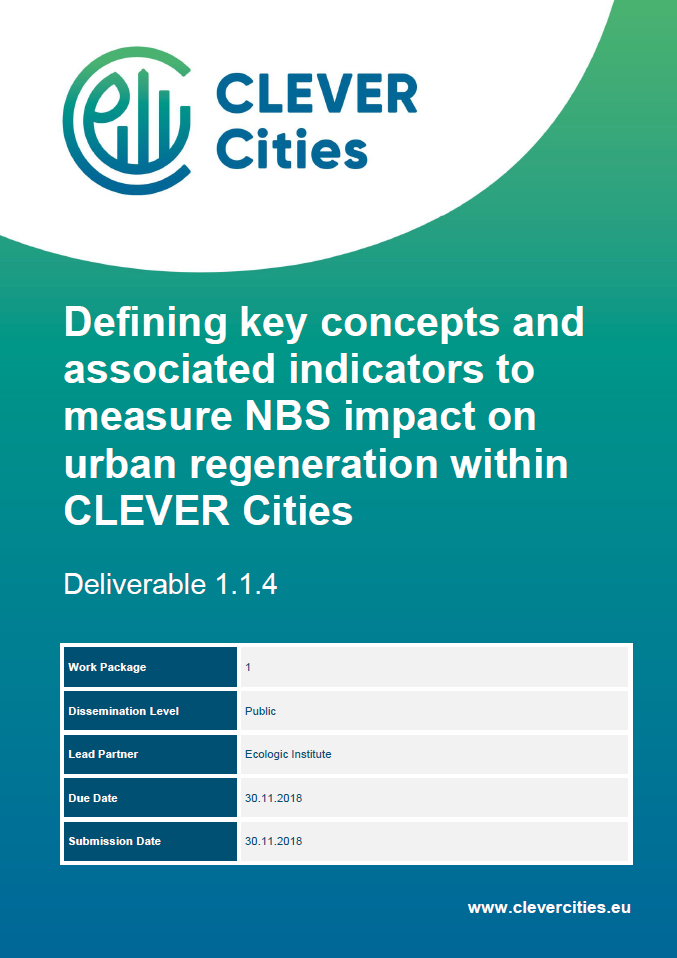CLEVER Cities Guidance
clever-guidance.clevercities.eu
- Publication
- Citation
CLEVER Cities 2023: CLEVER Cities Guidance. Website. Online: https://clever-guidance.clevercities.eu
The CLEVER Cities Guidance was officially launched on 27 September 2023 at the CLEVER Cities final conference in Hamburg, Germany. The online platform developed by Ecologic Institute features insights, tools, indicators and lessons learned about nature-based solutions (NBS) emerging out of the CLEVER Cities project and its nine partner cities. Filling a gap in available resources, the Guidance focuses on (1) policy and planning strategies, (2) how to generate and measure social impacts of NBS, and (3) approaches for co-creation and engaging stakeholders. A range of engaging formats such as videos, guidance documents, testimonies, policy briefs, and infographics/illustrations are utilized to make the contents more accessible and exciting than ever before.
- Policy and planning provide the framework for cities to achieve shared goals and harness the benefits of NBS. Policy refers to the formal guidelines, regulations, and laws set by authorities, while planning involves the strategic design and organization of urban spaces. This area of the Guidance includes tools and approaches to: advocate the value of NBS to decision-makers, foster collaboration across disciplines and municipal departments, and position NBS in policies and planning processes.
- NBS can generate diverse social impacts, affecting local communities' health, equity, inclusivity, and well-being. Assessing the social dimension can help optimize NBS to align with social needs and preferences, generating support and investments. In this area, we present materials and guidance to: understand the different social impacts that NBS can generate and help you monitor social impacts over time.
- By involving diverse stakeholders in all stages of NBS (design, implementation, maintenance and monitoring), co-creation ensures that NBS align with the needs of the people they serve and empowers communities to participate in the development and maintenance of these solutions. This ultimately fosters a sense of ownership and acceptance, and enhances NBS' sustainability and delivery of social benefits. Under this theme, we outline: why it’s important to co-create NBS, how to co-create NBS, how to evaluate the co-creation process and how co-creation is working in practice.
We invite you to visit the CLEVER Cities Guidance to explore the learnings of the CLEVER Cities project and its partner cities and discover evidence-based approaches and innovative case studies to advance nature-based solutions for urban regeneration and more resilient, sustainable, and thriving cities!
